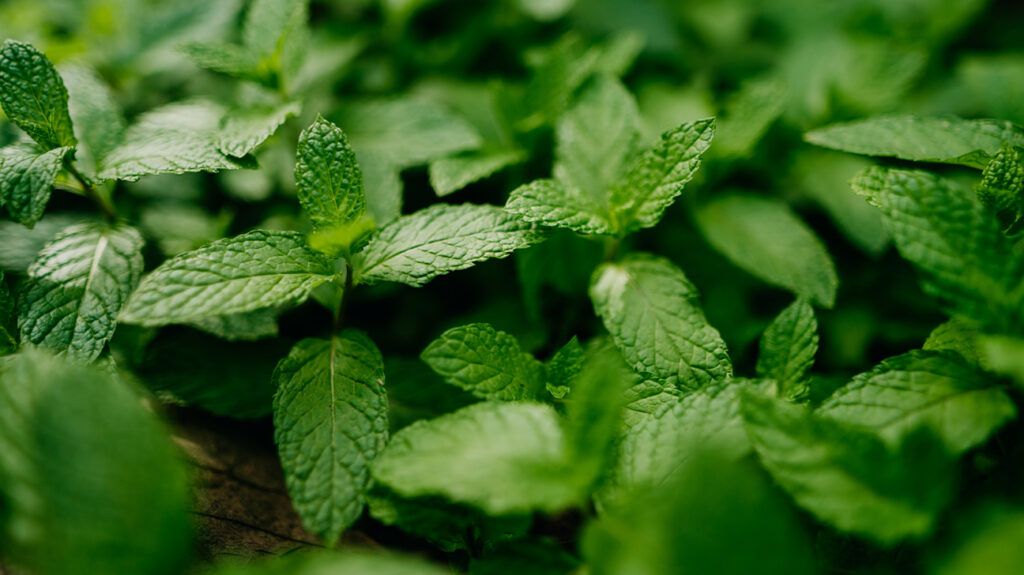Spearmint, or Mentha spicata, is a common species of mint. Research has suggested many potential health benefits, including pain relief, cognitive improvements, and hormone regulation. However, more research is necessary to confirm these benefits.
Spearmint is a common ingredient in food products, toothpastes, mouthwashes, and cosmetics.
Spearmint contains vitamins, antioxidants, and vital nutrients. Its aroma is very similar to that of peppermint. Although it contains less menthol than peppermint, it is rich in limonene, dihydrochalcone, and cineol and has a sweeter taste than peppermint.
This article discusses research into some possible health benefits of spearmint. It also suggests ways to try it and how to use it safely.

According to a 2021 review of the health benefits of spearmint, traditional uses of spearmint include relief of the following symptoms:
- indigestion
- gas
- diarrhea
- headaches
- abdominal pain
- sore throat
The reviewers concluded that spearmint essential oils and extracts show antimicrobial, antioxidant, anticancer, anti-inflammatory, and liver-protective properties. However, more research is necessary to confirm these effects.
The following sections outline some of these health benefits in more detail.
Topical pain relief
People can apply spearmint oil to the skin to help reduce joint pain. A 2017 review concluded that applying spearmint oil to the skin was a safe and effective way to help relieve pain, particularly in people with osteoarthritis. This may be due to its high carvone, limonene, and menthol concentrations.
Antifungal treatment
Like other species of mint, spearmint has antifungal properties. It may be useful in treating fungal infections resistant to antifungal medications.
A 2023 laboratory study found that mint essential oil prevented the growth of three species of fungus, including Candida albicans, the fungus that most commonly causes vaginal yeast infections.
Polycystic ovarian syndrome (PCOS) treatment
Spearmint may have an antiandrogenic effect, which may help improve symptoms of PCOS. Antiandrogens can block or suppress the action of male sex hormones, such as testosterone.
A
- weight loss
- regulation of reproductive cycles
- improved hormonal balance, including a reduction in free testosterone
- reduction in ovarian cystic follicles
Older
Improvements in memory
Spearmint extract may have cognitive health benefits.
A 2018 study found that older adults with age-associated memory impairment who took spearmint extract supplements daily saw a
Prevention of cell damage
According to a
Learn about antioxidant foods.
People can try spearmint in the following forms:
- fresh leaves
- loose-leaf tea or tea bags
- spearmint extract liquid for culinary dishes
- spearmint extract supplements in powder or capsule form
- spearmint essential oil for use on the skin
Fresh leaves
With fresh spearmint leaves, people can try:
- adding them to hot water to make tea
- chopping them into salads
- adding them to pesto or dip
- blending it into a smoothie
- making a mint sauce with vinegar and sugar
Spearmint extract
People use spearmint extract supplements to address a range of health conditions, although there is not enough reliable research available to confirm their effects. Supplements are available in capsule or powder form.
Spearmint extract for use in cooking has a strong flavor, and people may add 1 to 2 teaspoons depending on the recipe.
Spearmint essential oil
Unlike fresh spearmint and extracts, spearmint essential oil is not edible. People can rub it into the skin to help ease pain. Before use, a person must dilute it with a carrier oil. It may cause irritation if it comes into contact with the eyes.
If people take moderate doses of spearmint, such as in tea or as recommended on package instructions, it is unlikely to cause any adverse effects.
A 2017 study reported that spearmint extract does not produce adverse effects if people take up to 900 milligrams per day. It is not clear whether higher doses could be harmful. It is also unclear whether spearmint supplements are safe for use during pregnancy and breastfeeding.
People taking prescription medications should talk with a doctor before starting spearmint supplements, as there could be interactions.
Spearmint is a versatile herb that may have health benefits. Research has found evidence of its antifungal, antioxidant, and antiandrogen properties.
People can try spearmint as a tea using fresh or dried leaves or in supplement form. To relieve muscle or joint pain, people can mix spearmint essential oil with a carrier oil and rub it into the skin.
Spearmint may be unsafe to take alongside some prescribed medications, so always check with a doctor before trying it.


